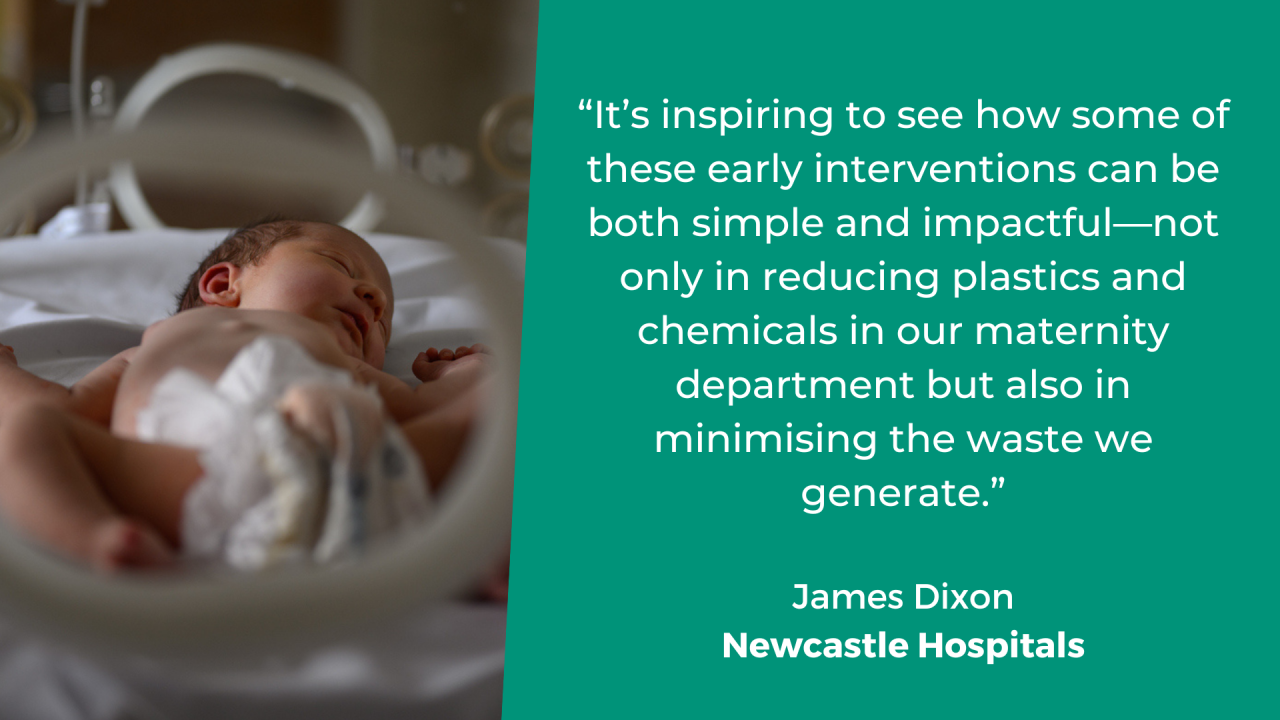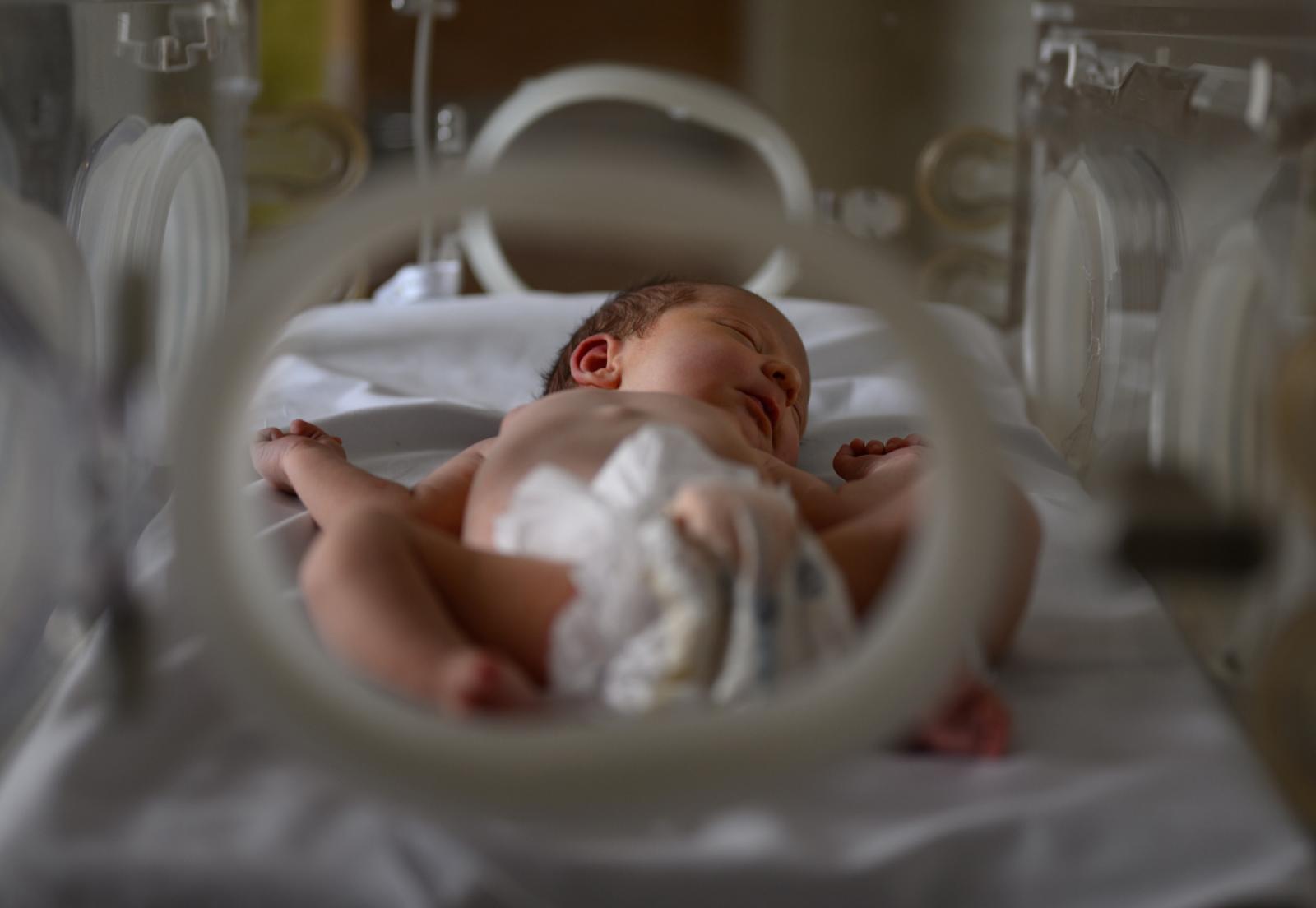An increasing network of hospitals, universities, and healthcare professionals across Europe has launched the Born Green Generation campaign, a groundbreaking initiative aimed at reducing unnecessary plastics and toxic chemicals in healthcare during the critical first 1000 days of life.
Prominent hospital trusts such as Great Ormond Street Hospital and the Newcastle upon Tyne Hospitals NHS Foundation Trust are at the forefront, piloting sustainable ward models. Universities are also developing educational modules for healthcare students, and healthcare providers are adopting sustainable practices. These efforts include replacing plastic baby bottles with glass, introducing washable diapers, and using reusable wipes.
Born Green Generation is calling on healthcare professionals, hospital staff, parents, parents-to-be, universities, policymakers, and industry leaders to join the movement. The campaign aims to phase out the overuse of plastics and exposure to toxic chemicals, including endocrine disruptors, which can lead to severe and lasting health issues such as chronic diseases, diabetes, and cancer.
The initiative invites hospitals and healthcare professionals to join a Europe-wide pledge to reduce plastics and toxic chemicals in maternity and paediatric care settings. This pledge is a call to action for healthcare stakeholders to commit to fostering sustainable practices, phasing out harmful materials, and advocating for a safer and healthier future for infants.

Associate Director of Sustainability at Newcastle Hospitals, and Vice Chair of Health Care Without Harm Europe, James Dixon ENnc FIEMA FRSA, commented:
“I’m proud that Newcastle Hospitals is working with progressive European partner hospitals at the forefront of this ambitious movement. So far, we have made progress in switching from single use plastic to reusable alternatives and educating staff and patients on how to avoid exposure to plastics and harmful chemicals. It’s inspiring to see how some of these early interventions can be both simple and impactful—not only in reducing plastics and chemicals in our maternity department but also in minimising the waste we generate.”
“We’re also seeing interest from our new and expectant parents, as well as healthcare professionals, which signals a growing desire to protect babies from harmful substances in these critical early days of their development.”
“At this stage we’re just a few hospitals. Real change needs momentum across our profession and the wider healthcare sector. I encourage my healthcare colleagues across Europe to protect vulnerable babies in their care by calling for an urgent and significant reduction in harmful plastics and chemicals in hospitals.”
Hospital trusts are already piloting new ward models to demonstrate practical ways to minimise plastic use and exposure to harmful chemicals. Meanwhile, universities are designing modules that equip future healthcare providers with the skills to embrace sustainable and circular healthcare practices. These collaborative efforts highlight the potential for systemic change in the healthcare sector.
As the world faces an unprecedented environmental crisis, Born Green Generation aligns with global efforts like the recently concluded fifth Intergovernmental Negotiating Committee on the Global Plastics Treaty. Although the Chair’s draft reflects encouraging steps, it remains unofficial and unfinalised. Without an official treaty, babies continue to be exposed to harmful plastics and toxic chemicals. During the first 1000 days—from conception to age two—infants are especially vulnerable to these exposures, which are largely avoidable.
By 2030, the Born Green Generation project envisions the first generation of babies born in healthcare settings free from unnecessary plastics and toxic chemicals in over a century. This ambitious goal underscores the urgent need for collective action to protect the health of future generations.
Centre Hospitalier d’Angoulême’s Coordonnatrice en Maïeutique, Dominique Licaud, added :
“At the Centre Hospitalier d’Angoulême, we believe that all babies should be born in healthcare environments as free as possible from these toxic substances. The initial results in our departments are very promising, and we are proud to lead by example and to help make this movement a model for other Maternity/Neonatology and Paediatrics departments across Europe and, more broadly, for the entire healthcare sector
So far, Centre Hospitalier d’Angoulême has reduced the exposure of newborns, children, and pregnant women to pollutants, and it is inspiring to see how some of these changes are both simple and effective—not only by reducing plastics and chemicals, including endocrine disruptors, in our department but also by decreasing the waste we produce.
However, we are just a few hospitals. Real change requires momentum within the profession as a whole. I encourage my colleagues in perinatal care across Europe to take concrete actions to protect vulnerable babies.”
Image credit: iStock
link

